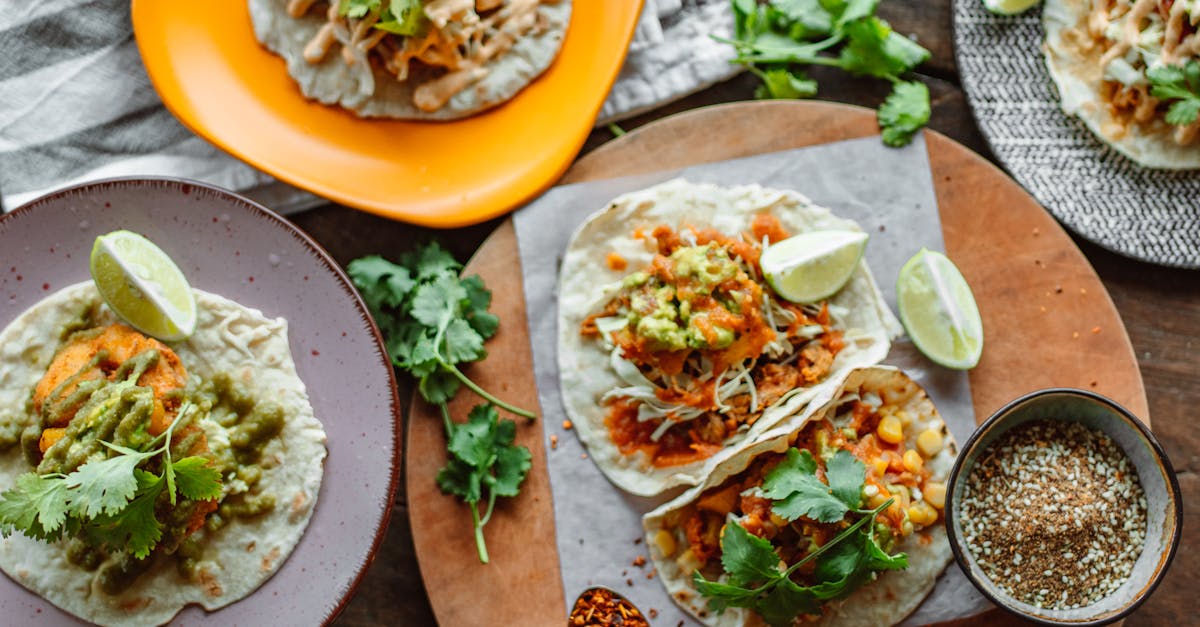Introduction to Dining Divergence
Dining is undergoing a fascinating transformation in 2023, reflecting evolving tastes and societal changes. As global cuisines intersect, they create a tapestry of flavors and innovations that redefine our culinary experiences. From fusion dishes to revived traditional methods, the dining landscape is more diverse than ever. Consumers crave not only new tastes but narratives behind what they consume. This year, the dining divergence captures a unique blend of authenticity and experimentation. Let’s explore the various facets of this dynamic culinary shift.
Fusion Cuisine Takes Center Stage
Fusion cuisine isn't new, yet 2023 has seen it gain unprecedented traction. This trend involves blending elements from diverse culinary traditions to create innovative dishes. From Korean-Mexican tacos to Mediterranean-Indian curries, these combinations challenge traditional notions of dining. Chefs are daring with spices, ingredients, and presentation, creating visually mesmerizing and palate-pleasing dishes. The popularity of such cuisine mirrors a world more connected than ever. While once considered unconventional, fusion is now celebrated for its creativity and inclusivity.
Plant-Based Evolution
The plant-based movement has evolved beyond simple substitutes to innovative culinary arts. Diners are increasingly opting for plant-based diets due to health, environmental, and ethical considerations. New ingredients like jackfruit, mushroom mycelium, and chickpeas form hearty, flavorful bases for inventive dishes. Not just a fad, plant-based options are entering fine dining, with famous chefs creating entirely plant-based tasting menus. This shift challenges the traditional meat-centric meal structures, offering vibrant and satisfying alternatives.
Revival of Traditional Techniques
As diners seek authenticity, there's a growing appreciation for age-old culinary techniques. Slow cooking, fermentation, and open-fire grilling are resurging, celebrating their rich cultural histories. These techniques highlight the natural flavors and textures of quality ingredients, often overlooked by modern, rapid cooking styles. This revival isn’t about nostalgia alone; it's about fostering respect and understanding of food’s roots. Both restaurateurs and home cooks are excited to explore and preserve these authentic methods.
Sustainability in Focus
Sustainable dining is no longer an afterthought but a key focus of culinary establishments worldwide. With growing awareness of climate change, restaurants are prioritizing locally-sourced, seasonal produce, reducing waste. Diners increasingly expect transparency from their eateries about sourcing, with many demanding farm-to-table experiences. Zero-waste cooking, using entire plants or animals to avoid neglecting any part, symbolizes thoughtful consumption. As diners understand the environmental impact of their choices, sustainable dining practices converge with mainstream expectations.
Avant-Garde Artisans
Artisan techniques—meticulously crafted by skilled individuals—are witnessing a renaissance in 2023. Fermenting, curing, and preserving elevate the dining experience, providing complex flavors and textures. A renewed emphasis on hand-made products is driving the popularity of bespoke cheeses, charcuterie, and craft beverages. Patrons cherish the story, craft, and individuality embedded in each artisan offering. This approach redefines luxury, focusing not merely on rarity but the individual craftsmanship that defines each treat.
Technology Meets Gastronomy
Technology is revolutionizing dining, with devices and apps facilitating awe-inspiring culinary feats. 3D food printing, AI-powered cooking assistants, and smart kitchen appliances enrich dining experiences, offering precision and innovation. Interactive dining concepts include augmented reality menus that provide detailed origins and ingredient journeys of each dish. These technological tools are bridging gaps, making extraordinary dining accessible, and elevating traditional experiences. This symbiotic relationship reflects how the digital age influences our most beloved traditions.
Dining Spaces Reimagined
The ambiance of dining spaces has seen creative enhancements, matching the evolution of diners' preferences. More than a meal, dining is an experience, with design playing an essential role in storytelling. From eco-friendly materials to versatile interior layouts that adapt to seasons, spaces mirror culinary innovation. Pioneering concepts include open kitchens providing transparent cooking processes or multi-sensory environments that stimulate all senses. As diners seek memorable experiences, eateries prioritize creating engaging and immersing atmospheres.
The Global Palate and Cultural Exchange
Globalization has expedited culinary sharing, allowing palates to extend beyond borders. As cultures cross-pollinate, diners are exposed to flavors and textures from previously distant lands. Events and festivals celebrate this exchange, offering opportunity to understand and appreciate diverse backgrounds. Cooking classes, tasting nights, and food markets are platforms where culinary traditions can be shared and cherished. This cultural mingling cultivates kinship and understanding, underscoring the universal nature of food.
Summary and Conclusion
Dining Divergence 2023 paints a vibrant picture of an ever-evolving gastronomic world. As new trends emerge, they are met with enthusiasm for innovation alongside a yearning for authenticity. Fusion, sustainability, and technology converge, crafting a novel and thrilling dining experience graspable by aficionados and casual diners alike. By embracing change, the dining landscape promotes inclusivity and diversity, inviting everyone to share in the joy of food. In this era of culinary exploration, the possibilities of what we eat and how we experience it are boundless.